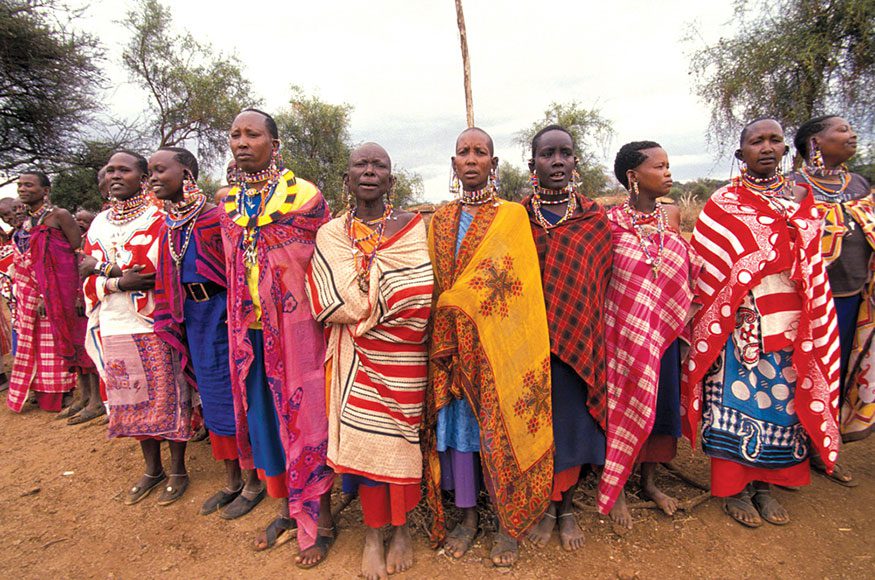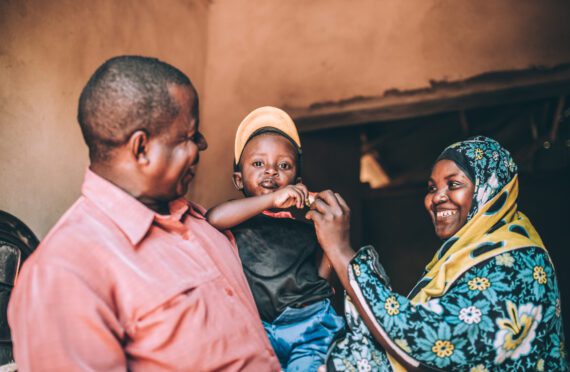Editor’s note: This article is part of the March 2020 issue of Institute Insights.
By Tanuja Rastogi
The 2015 Hunger Report, When Women Flourish … We Can End Hunger, also examined the impacts of the hours of household work and child care that women are generally expected to perform in addition to farming or paid work. This is sometimes known as “reproductive work” since it is composed of the tasks necessary to maintain a home and family, including fetching water and/or firewood, processing and cooking food, cleaning, sewing, caring for children and people who are ill or injured, and so forth.
The time consumed by unpaid labor reduces women’s ability to earn incomes outside the home. This, in turn, affects the extent to which they are able to manage or participate in decision-making about household finances.
In many low-resource contexts around the world, social norms and gender inequality that underpin unbalanced divisions of labor between women and men are particularly harmful when women are pregnant. With many hours of daily work to complete, often requiring strenuous physical exertion, women may have little time or autonomy to seek prenatal care, or to rest if advised by health workers to do so. They may not have accurate information about why it is critical to have the proper nutrients during pregnancy, or they may understand the special needs of pregnancy but lack the resources to act on this knowledge. Once the baby arrives, the demands of work, paid and unpaid, may prevent a new mother from breastfeeding exclusively. Particularly in low-income families, breastfeeding is a proven way of increasing infant survival rates.
Good nutrition during pregnancy, particularly avoiding becoming or remaining anemic, increases the odds of a safe delivery without life-threatening complications. In addition, there is increasing evidence that a pregnant woman’s nutritional status shapes her child’s long-term health. Women who are pregnant or may become pregnant need to gain access to the right nutrients as soon as possible to reduce the risks of childhood stunting and infant mortality. Pregnancy is an important part of the critical 1,000-day window for human nutrition.
What happens during pregnancy and in the first two years of life can establish a foundation for lifelong good health. But despite some progress at the global level, it remains far too common for the 1,000 days to be marked instead by irreversible damage to a child’s physical and cognitive development (stunting) or, worse, death. Currently about one in four children younger than 5 is stunted, and about 2.4 million young children die every year of preventable malnutrition-related causes.
Progress on reducing women’s unequal burden of unpaid work and the problems associated with it, particularly during pregnancy, has been far too slow. However, community-based nutrition programs have proven to be effective in supporting healthy pregnancies, good birth outcomes, and well-nourished children.
Another approach to women’s lack of time for paid work is to make available affordable and reliable child care. For example, Kidogo is a novel social enterprise that provides hundreds of low-income mothers in Kenya with child care—while also providing business opportunities to childcare providers.
Through comprehensive training programs, female entrepreneurs called “mamapreneurs” manage their own Kidogo childcare centers that prioritize quality early education and proper health, nutrition, and hygiene practices. The program is helping mothers earn income and has also improved the nutritional status of the children who participate, with a reduction of 7 percent in stunting.
Ultimately, achieving gender equity requires reducing and more fairly sharing the burden of unpaid work. As the Hunger Report points out, public services such as affordable child care and clean water sources near people’s homes are contributing to progress, albeit slowly, but another part of the solution is still largely lacking: men’s increased responsibility and participation in maintaining their homes and caring for their families.
Tanuja Rastogi is senior global nutrition policy advisor with Bread for the World Institute.



